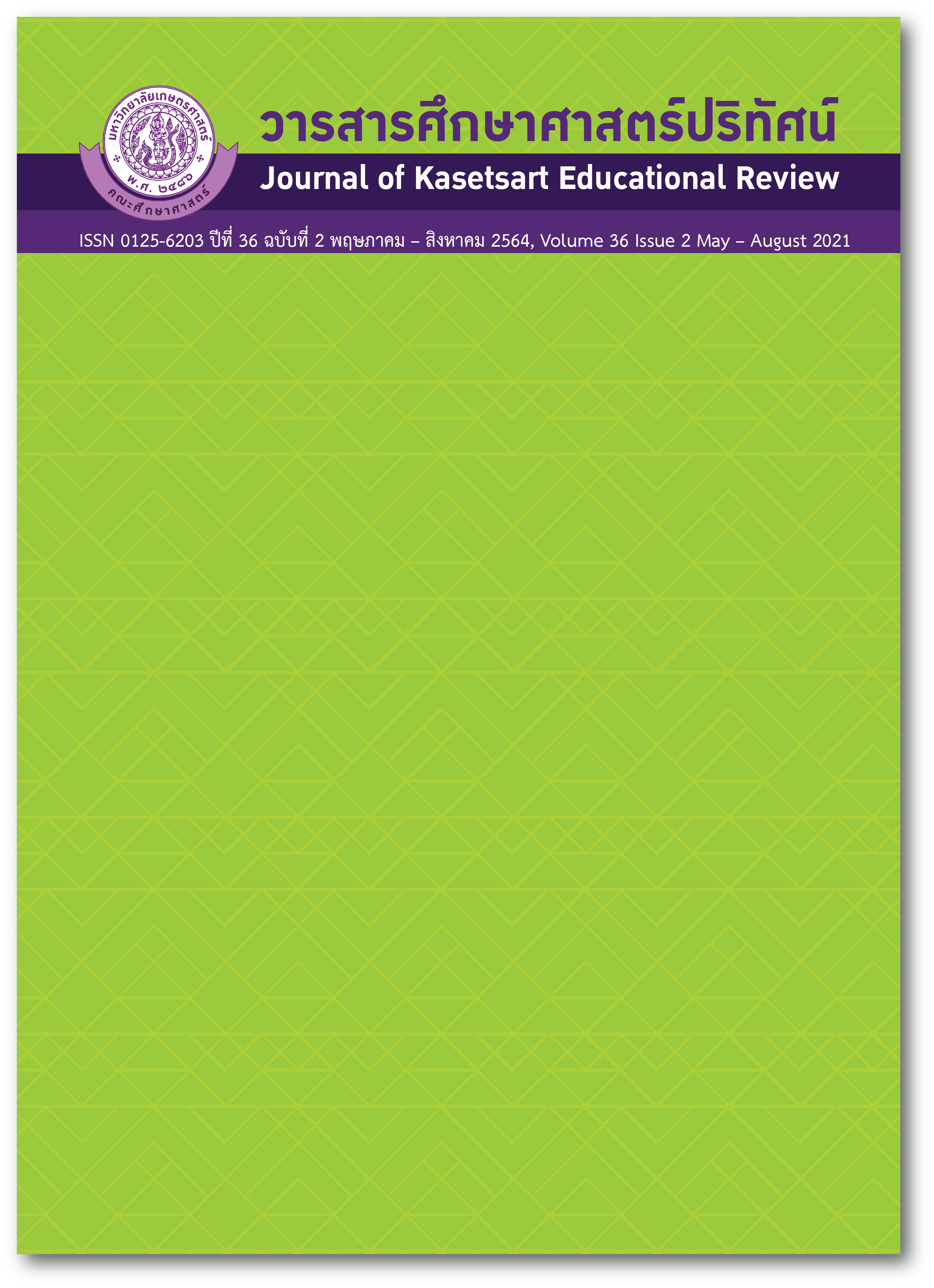ผลจัดการเรียนรู้โดยใช้การวิจัยเป็นฐาน เรื่องอาณาจักรพืช ที่มีต่อผลสัมฤทธิ์ทางการเรียน และความสามารถในการคิดอย่าง มีวิจารณญาณของนักศึกษา ชั้นปีที่ 2 สาขาวิชาวิทยาศาสตร์ทั่วไป มหาวิทยาลัยราชภัฏจันทรเกษม
คำสำคัญ:
การจัดการเรียนรู้โดยใช้การวิจัยเป็นฐาน, ผลสัมฤทธิ์ทางการเรียน, ความสามารถในการคิดอย่างมีวิจารณญาณบทคัดย่อ
การวิจัยครั้งนี้มีวัตถุประสงค์เพื่อศึกษาผลสัมฤทธิ์ทางการเรียนเรื่องอาณาจักรพืช และความสามารถในการคิดอย่างมีวิจารณญาณ ก่อนเรียนและหลังเรียน ระหว่างกลุ่มควบคุมกับกลุ่มทดลอง ที่ได้รับการจัดการเรียนรู้แบบปกติ และการจัดการเรียนรู้โดยใช้การวิจัยเป็นฐาน ที่ศึกษาในชั้นปีที่ 2 สาขาวิชาวิทยาศาสตร์ทั่วไป มหาวิทยาลัยราชภัฏจันทรเกษม ปีการศึกษา 2562 โดยกลุ่มทดลองจำนวน 30 คน ได้รับการจัดการเรียนรู้โดยใช้วิจัยเป็นฐาน และกลุ่มควบคุมที่จัดการเรียนรู้แบบปกติ จำนวน 24 คน
เครื่องมือที่ใช้ในการวิจัยคือ (1) แผนการจัดการเรียนรู้โดยใช้การวิจัยเป็นฐาน และแผนการจัดการเรียนรู้แบบปกติ จำนวน 2 แผน แผนละ 9 ชั่วโมง (2) แบบทดสอบผลสัมฤทธิ์ทางการเรียนเรื่องอาณาจักรพืช และ (3) แบบวัดความสามารถในการคิดอย่างมีวิจารณญาณ สถิติที่ใช้ในการวิจัย ได้แก่ ค่าเฉลี่ย
ค่ามัธยฐาน ส่วนเบี่ยงเบนมาตรฐาน การวิเคราะห์ผลสัมฤทธิ์ทางการเรียน และความสามารถในการคิดอย่างมีวิจารณญาณก่อนเรียนและหลังเรียนด้วยการทดสอบ Wilcoxon signed rank และศึกษาการเปลี่ยนแปลงความสามารถในการอ้างอิง ความสามารถในการระบุข้อตกลงเบื้องต้น ความสามารถในการอนุมาน ความสามารถในการตีความ และความสามารถในการประเมินข้อโต้แย้งด้วยแผนภูมิ box-Whisker
ผลการวิจัยพบว่า (1) ผลสัมฤทธิ์ทางการเรียน และความสามารถในการคิดอย่างมีวิจารณญาณของกลุ่มทดลองกับกลุ่มควบคุม หลังเรียนมีค่ามัธยฐานสูงกว่าก่อนเรียนที่ระดับ .01 (2) เมื่อความสามารถในการคิดอย่างมีวิจารณญาณ พบว่า หลังเรียนกลุ่มทดลองมีค่ามัธยฐานความสามารถในการอ้างอิง และความสามารถใน
การตีความที่สูงกว่ากลุ่มควบคุม ในขณะที่ความสามารถการอนุมาน ความสามารถในการยอมรับข้อตกลงเบื้องต้น และความสามารถในการประเมินข้อโต้แย้ง พบว่า
กลุ่มควบคุม และกลุ่มทดลองมีค่ามัธยฐานเท่ากัน ดังนั้น
การจัดการเรียนรู้โดยใช้วิจัยเป็นฐานเป็นทางเลือกหนึ่งที่สามารถพัฒนาผลสัมฤทธิ์ทางการเรียนและความสามารถในการคิดอย่างมีวิจารณญาณได้
เอกสารอ้างอิง
Songklanagarind Journal of Nursing. 39(2). 87-97. [in Thai].
Beyer, K. B. (1987). Practical Strategies for the Teaching of Thinking. Boston: Allyn and Bacon, Inc.
Boonphadung, S. (2019). The development of student teachers’ classroom action research competency using Wlodkowski’s Motivational approach. Journal of Education Narasuan University, 21(2), 327-340. [in Thai]
Ennis. R.H. (1985). A Concept of Critical Thinking : A Proposed for Research in Teaching and Education. Rand: Mannally and Company.
Mumm, A. M. & Kersting, R. C. (1997). Teaching critical thinking in social work practice courses. Journal of Social Work Education, 33: 75-84.
Office of Education Council. (2017). National Education Plan 2560-2579 B.E.. Bangkok : Plik wan Graphic Co., Ltd.
Phanmanee, A. (1999). Psychology of teaching. Bangkok: Ton Or 1999. [in Thai]
Songserm M., Thongsorn P. and Chaturanon W. (2020). The development of biology instructional model to enhance analytical thinking critical thinking and problem solving thinking skills of Mathayomsuksa six students. Journal of Education Naresuan University. 22(1), 175 - 188. [in Thai].
Sinthapanon S. (2009). Teaching innovation to improve the quality of youths. 3rd.Bangkok : 9119 Technic Printing, [in Thai].
Watson, G. and Glacer, E.M. (1964). Watson-Glaser Critical Thinking Appraisal Manual. New York : Brace and World Inc.
Wiratchai N. and Wongwanich S. (2007) . Thesis Counseling Guidelines.Bangkok : Chulalongkorn University press. [in Thai].
ดาวน์โหลด
เผยแพร่แล้ว
ฉบับ
ประเภทบทความ
สัญญาอนุญาต
บทความทุกบทความเป็นลิขสิทธิ์ของวารสารคณะศึกษาศาสตร์ มหาวิทยาลัยเกษตรศาสตร์ วิทยาเขตบางเขน
วารสารศึกษาศาสตร์ปริทัศน์ (Kasetsart Educational Review)






